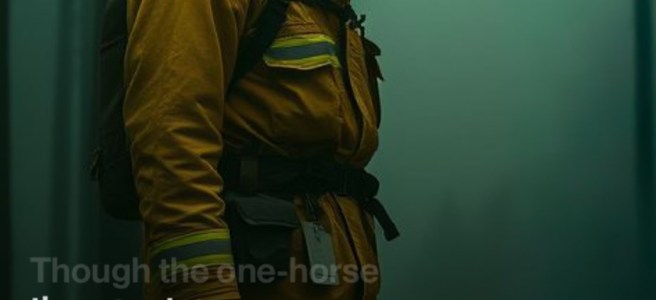Ten years ago, approaching my 50th birthday, I was in a rut. Not suffering from writer’s block, just too long moored. I’d written poetry for almost as long as could remember, in whichever country and under whatever circumstances. Writing on a computer if I had one, on scraps of paper if I didn’t, composing lyrics in my head walking to class if there was no napkin or envelope. I called the walking variety “street poems”, and I recommend them: they improve memory, and your words learn their rhythm from your feet, uniquely yours, always idiosyncratic and metrical. But ten years ago I had reached a little backwater of self-image, feeling as though each new piece, instead of stretching my own mythology a little farther into Middle Earth — new landscapes — barely extended beyond middle age. Too lacking in energy to touch even the last boundary.
And so I did something I had never done before, on impulse. I decided to write under a pen name. There was no forethought. Instead, I turned in the chair and caught a glimpse of Lili, our Russian Blue, stretched out on the back of the sofa. Cat and couch. And so it was Kat Couch — although I’ve tended to pronounce the last name Cooch, as in Hoochie Coochie — but less Muddy Waters and more Arthur Quiller-Couch, the Cornish novelist and editor of The Oxford Book Of English Verse (1250–1918). Like my parents, Sir Arthur was a Bard of the Cornish Gorseth Kernow, and devoted to the county.
The pseudonym had an effect, although I can’t say it had any predictable effect. Who was Kat? Was they a she? Twenty? Thirty? Older? Two things happened. I stopped writing first person confessional poetry and began to tell stories. In one, a girl in Las Vegas stares at a reproduction of Landscape with the Fall of Icarus, once attributed to Bruegel the Elder, and the subject of poems by W.H. Auden and William Carlos Williams. She’s bored; she texts a friend. In other poems a woman tidies the kitchen after her husband leaves on a sales trip; in another, a homicidal country girl takes revenge for social media bullying; parents taking a walk with their young son Dylan lose sight of him when he wanders off in search of a bear. A perplexed mule deer observes a man living on the property come and go from a great “unnecessary” house. And so on. Subjects ranged wide and wildly. And that was good.
Gradually, Kat began to come home again, absorbing the middle-aged male, and accepting him well enough as long as he continued to write about the three-leaf sumac and the black-billed magpies of these foothills. I still defer to her: she has no tolerance for self-indulgence; she wants to spin a good yarn. And if she shows a preoccupation with animal death and, for lack of a better word, “bioempathy,” she at least doesn’t require room and board. And she never eats the last ginger snaps.
Over the past six months or so I’ve posted one hundred and twenty of Kat’s poems. They fall into three sets of forty, and one day soon I’ll publish them in print, in a slipcase edition. Fewer than ten were written this year; some date from that 50th birthday. I’m not inclined to move on from Kat. She may be it for me now. But I do know that the poems here amount to a distinct body of work, and everything from this date will be something else.
I’ve been making videos lately — for introductions and job interviews, and I marvel at my favorite ASMR folk, how generous and expert they seem in their digital skin, in their public personas. In my brief clips I am a slow-witted neanderthal who rarely smiles. I bite the ends off words like cheap cigars; pauses reproduce, begetting ums and ahs. That public persona is as strange now as Kat’s was in 2010, but I plan to get to know it a little better. So I am going back over these poems — I hope near-weekly, if not daily — and recording a video reading of each one, to be posted. Expect an occasional disembodied head, a pair of hands, an Apache pepper plant on the sill, words tumbling from curtains and cactus. Lili, still with us, may show up, demanding an appearance fee, salted crackers, royalties, naming rights.



